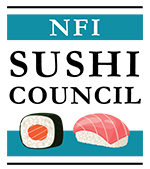“Tuna Surprise”‘ Mercury Policy Project (MPP) School Lunch Scare Reveals New Low In Quasi Science
Last week when Mercury Policy Project (MPP) released its agenda driven ramblings in the form of a report on mercury in canned tuna, a number of questions were raised about this opinion piece that was neither peer-reviewed nor published. The fact that the report completely ignored the multitude of studies showing the benefits of eating tuna and the harm that comes when people dont eat enough seafood had some asking just what type of risk analysis MPP had done in order to put the actual risks in perspective.
Well, now we have that answer and it is, not surprisingly, a new low in quasi science. Youll remember the reports lead author Ned Groth was featured in various news outlets including the venerable Food Chemical News. Lets take a look at what he told them:
Additionally, there are some questions to be asked about the report. Groth admits his organization didnt conduct a survey to find out how commonly tuna is served in schools, adding that hes heard ‘anecdotal’ references to the frequency of tuna served in lunches of a friends grandson in New Jersey.
Really? MPP is basing its current study on anecdotal references to the frequency of tuna served in lunches of a friends grandson in New Jersey? Is that the threshold used by FDA, USDA and CDC? I wonder if Dr. Margaret Hamburg at FDA immediately consults that organizations vast library of anecdotal food safety literature authored by a friends grandson in New Jersey before ordering a risk assessment for any number of products. Im sure she does. It sounds like the platinum standard in science.
Just to be clear and just so all the reporters who covered this story know the Mercury Policy Project chose not to research the actual exposure risk associated with its findings and in fact made up its own policy recommendations based on what its lead researcher heard about a friends grandson in New Jersey.
Might I suggest that reporters who are not outraged by this admission recheck their own standards for reporting?


